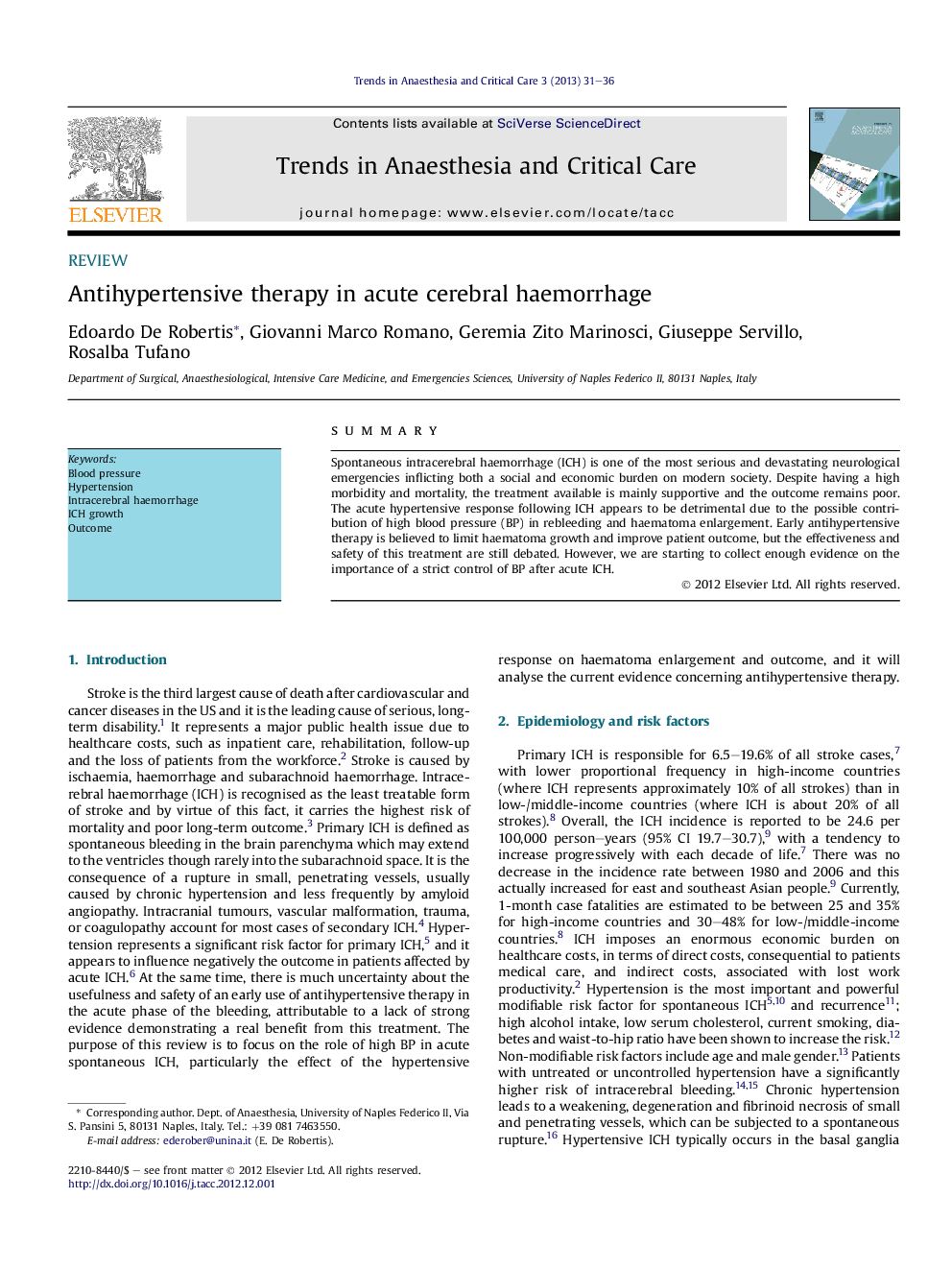| Article ID | Journal | Published Year | Pages | File Type |
|---|---|---|---|---|
| 2772690 | Trends in Anaesthesia and Critical Care | 2013 | 6 Pages |
SummarySpontaneous intracerebral haemorrhage (ICH) is one of the most serious and devastating neurological emergencies inflicting both a social and economic burden on modern society. Despite having a high morbidity and mortality, the treatment available is mainly supportive and the outcome remains poor. The acute hypertensive response following ICH appears to be detrimental due to the possible contribution of high blood pressure (BP) in rebleeding and haematoma enlargement. Early antihypertensive therapy is believed to limit haematoma growth and improve patient outcome, but the effectiveness and safety of this treatment are still debated. However, we are starting to collect enough evidence on the importance of a strict control of BP after acute ICH.
